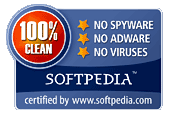The development is frozen. Sorry.
For those who still want to try
the incomplete 64-bit version: odbg64.zip
Progress in OllyDbg 64 (05-Feb-2014)
VERSION 2.01 (27-Sep-2013)
+ Disassembler v2.01, preliminary version (GPL v3)
For those who still want to try
the incomplete 64-bit version: odbg64.zip
Progress in OllyDbg 64 (05-Feb-2014)
VERSION 2.01 (27-Sep-2013)
+ Disassembler v2.01, preliminary version (GPL v3)
Off-topic
1: PaperBack -
backups on the paper (v1.10 22-Jul-2013)
Off-topic 2: Jason - graphical interface to the Hercules S/370 emulator
Off-topic 2: Jason - graphical interface to the Hercules S/370 emulator
OllyDbg is a 32-bit assembler level analysing debugger for Microsoft® Windows®. Emphasis on binary code analysis makes it particularly useful in cases where source is unavailable. OllyDbg is a shareware, but you can download and use it for free. Special highlights are:
- Intuitive user interface, no cryptical commands
- Code analysis - traces registers, recognizes procedures, loops, API calls, switches, tables, constants and strings
- Directly loads
and debugs DLLs
- Object file scanning - locates routines from object files and libraries
- Allows for user-defined labels, comments and function descriptions
- Understands debugging information in Borland® format
- Saves patches between sessions, writes them back to executable file and updates fixups
- Open
architecture - many third-party plugins are available
- No installation - no trash in registry or system directories
- Debugs multithread applications
- Attaches to running programs
- Configurable disassembler, supports both MASM and IDEAL formats
- MMX, 3DNow! and SSE data types and instructions, including Athlon extensions
- Full UNICODE support
- Dynamically recognizes ASCII and UNICODE strings - also in Delphi format!
- Recognizes complex code constructs, like call to jump to procedure
- Decodes calls to more than 1900 standard API and 400 C functions
- Gives context-sensitive help on API functions from external help file
- Sets conditional, logging, memory and hardware breakpoints
- Traces program execution, logs arguments of known functions
- Shows fixups
- Dynamically traces stack frames
- Searches for imprecise commands and masked binary sequences
- Searches whole allocated memory
- Finds references to constant or address range
- Examines and modifies memory, sets breakpoints and pauses program on-the-fly
- Assembles commands into the shortest binary form
- Starts from the floppy disk
